“I have often thought it would be a blessing if each human being were stricken blind and deaf for a few days at some time during his early adult life. Darkness would make him more appreciative of sight; silence would teach him the joys of sound.” – Helen Keller, Three Days to See
We are all seeking happiness.
But so many have been hoodwinked into looking in the wrong places.
In the above quote, Helen Keller suggests that a large part of happiness comes from gratitude.
Imagine the ultimate happiness that Helen Keller might have experienced if she had regained her sight. What about us?
Would we empathize with Keller and the blind if we challenged ourselves to survive for three hours without our eyesight?
Would we gain gratitude and glean a speck of that ultimate happiness?
I believe we would.
No, I am not promoting sadism. Rather, I’m promoting discipline, delayed gratification, control, fear-mastery, and mind-body unity.
Voluntary hardship is the practice of opting for growth over comfort by choosing to overcome avoidable adversities. It cultivates an appreciation for life and fortifies our willpower and character.
Change your Lens, Change your Life
Too many adults I know are stuck in a rut. They’ve dug themselves a narrow, comfortable routine, and with every passing year they become further entrenched.
We take the same exact commuting paths day in and day out for years. We become numb to it all, not really seeing. Sometimes we don’t even realize that we’ve arrived.

Below is a list of challenges; some you can sample and try for a day or two, others you might adopt as a new life rhythm.
It might sound strange, but I guarantee that if you start doing these things – any of these things – you will reinvigorate your life and establish new levels of fulfillment and happiness.
“Your level of success will seldom exceed your level of personal development, because success is something you attract by the person you become.” – Jim Rohn
Challenges to Transform Your Life
“Those who only do what they feel like…don’t do much. To be successful at anything you must take action even when you don’t feel like it, knowing that the action itself will produce the motivation you need to follow through.” – Hal Elrod
The merits of voluntary hardship was made clear to me when I listened to a podcast by Tim Ferris and Mr. Money Mustache. Their interview, largely based on frugality and personal growth, inspired me to do two things: begin biking to my carpool location, and complete a 3-day fast.

Are you convinced? Are you willing to give up ease, comfort, and indulgences for fulfillment, pride, purpose, and satisfaction?
If so, start incorporating a few of these voluntary hardships into your life. I picked these challenges either because I have done or want to do them.
Aspects:
- $ Financial
- ♥ Health/Appearance
- ⍟ Volunteer/Make A Difference
- ƒ Family/Relationships
- © Career/Business
- † Personal Growth
1. Fast
Aspects: ♥ †
The Challenge: Do a 2-day fast where the only thing you can consume is water. (Annually)
I recently finished Siddhartha by Hermann Hesse. In the book, there is a boy with no possessions. During a job interview, he is asked what he has to offer, and he responds: “I can think. I can wait. I can fast.”
When questioned on what good fasting is, the boy responds:
“It is very good, sir. When a person has nothing to eat, fasting is the smartest thing he could do. When, for example, Siddhartha hadn’t learned to fast, he would have to accept any kind of service before this day is up, whether it may be with you or wherever, because hunger would force him to do so. But like this, Siddhartha can wait calmly, he knows no impatience, he knows no emergency, for a long time, he can allow hunger to besiege him and can laugh about it. This, sir, is what fasting is good for.”
When my wife and I were first getting to know each other, we did a 7-day fast— nothing but water and toothpaste. It was an eye-opening experience and one that we both value and look back on fondly.
While I wouldn’t recommend a 7-day fast for everyone, I think everyone at one point or another should try a 1-day fast, and those who really want to challenge themselves should attempt a 2-day fast!
If this sounds too intense, try an intermittent fast, where you only eat between certain times (i.e. 10am-6pm); this will keep your mind sharper, save money and time, and it can cut calories.
2. Launch a Cellular Blackout
Aspects: ƒ, †, ©
The Challenge: Keep your phone in airplane mode for a whole day. (Monthly)
I did this one fairly recently, and it became fun once we had to drive somewhere…NO GPS! I find it really sad how reliant I am on GPS. I do not even know the names of the streets two blocks away from me.
Another suggestion for this challenge is to keep your phone off your person when you are at home. Create a designated spot when you walk in the door to place your phone and free yourself from the distraction of every buzz and ding. I especially recommend this one for parents.
One last challenge is to put your smartphone in grayscale mode. This makes media and notifications less distracting and your phone more utilitarian.
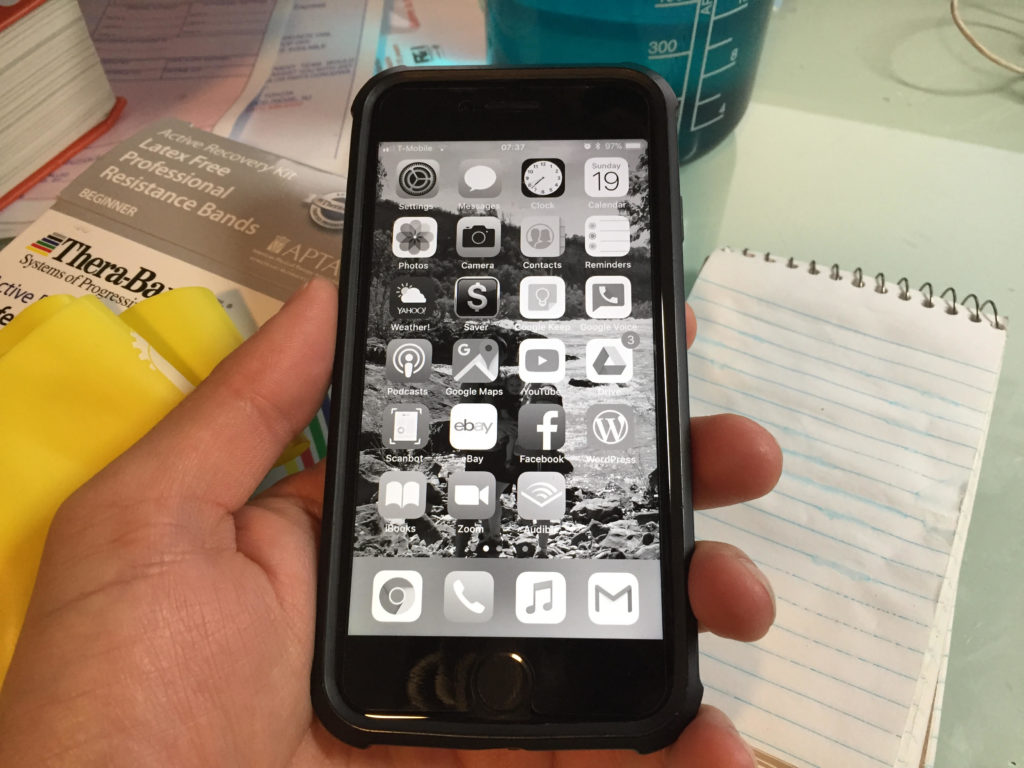
3. Take Cold Showers
Aspects: ♥, †
The Challenge: Take a cold shower. (Weekly)
I started researching the “Wim Hof Method” at the suggestion of a few friends. Wim Hof holds the record for the Longest Ice Bath (2 hours). He also ran a marathon in the Arctic Circle and climbed Mt. Kilimanjaro wearing just his shorts. His main practice involves learning how to breathe so your body fills with oxygen, and submitting oneself to the cold.
For over a year now I have been taking nothing but cold showers and during this time I have learned a few things:
- Cold water is a lot colder in the winter months. You can actually get brain freeze from the outside in less than the three minutes needed to shower.
- I’ve learned to conquer discomfort and find happiness in maintaining discipline, where my mind and will is strengthened.
- Sounds crazy I know, but other than the electrifying feeling of going into a shower and transforming from half asleep to wide awake and super-alert, there are also a multitude of health benefits of cold showers.
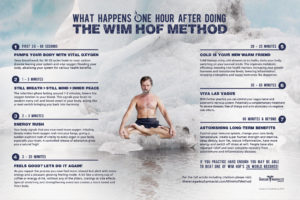
4. Eliminate TV
Aspects: ♥, ©, ƒ
The Challenge: Limit your TV watching to no more than one hour each day. (Daily)
This one is a game-changer and probably the hardest for most people to contemplate. According to a Nielsen report, American adults are watching over five hours of television every day!
Imagine what you could do if you instead used that time to invest in yourself? Start a side hustle, fulfill your dreams, improve your relationships – the possibilities are endless.
We do not own a TV. Back when we were living with my parents, our toddler would pass by the TV and point at it, wanting to watch something. It became too easy a temptation for us as parents to use the TV as a digital babysitter. So when we moved into a place of our own, we decided not to buy a TV.
5. Join a Carpool
Aspects: $, ƒ
The Challenge: Gather some nearby co-workers and join a vanpool. (Daily)
This one sounds difficult but it is actually awesome! Sure, you deal with other people’s schedules, a meet-up location, and not always having your own car at work. Still, the benefits are worth it! Here are some pluses of carpools:
- Nap your way to and from work – I love coming home to my family after a nice rejuvenating nap.
- Save money on gas and wear and tear.
- Talk freely with co-workers outside of work – the tips and insights I’ve gained from co-workers during our carpool drives have been invaluable.
6. Wake up at Sunrise
Aspects: ♥, ©, ƒ, †
The Challenge: Wake up one hour earlier than you have to. (Daily)
“Early to bed, early to rise, makes a man healthy, wealthy and wise” – Benjamin Franklin
I’m in the middle of reading The Miracle Morning by Hal Elrod. It’s all about the revolutionary way your life changes just by voluntarily waking up an hour before you have to and following a morning routine.
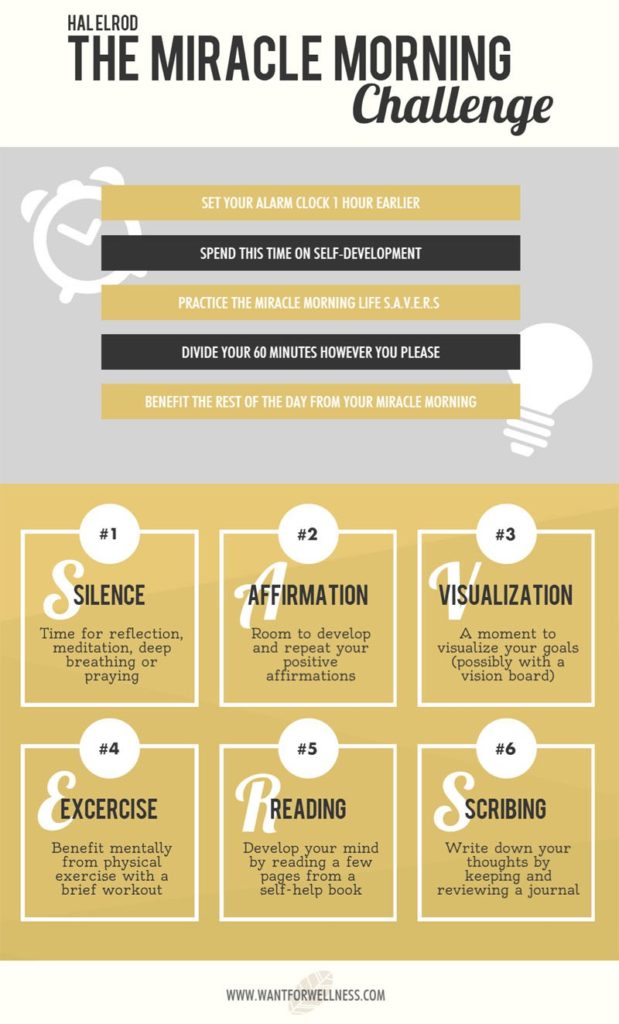
7. Bike to Work:
Aspects: $, ♥
The Challenge: Use your bike to commute, rather than driving. (Daily)
Although I live 40 miles away from work, I bike 2 miles each way to my carpool location. I am not hardcore about this, and I am more of a fair-weather biker. Still, the feeling of getting up in the morning and hopping on the bike is invigorating.
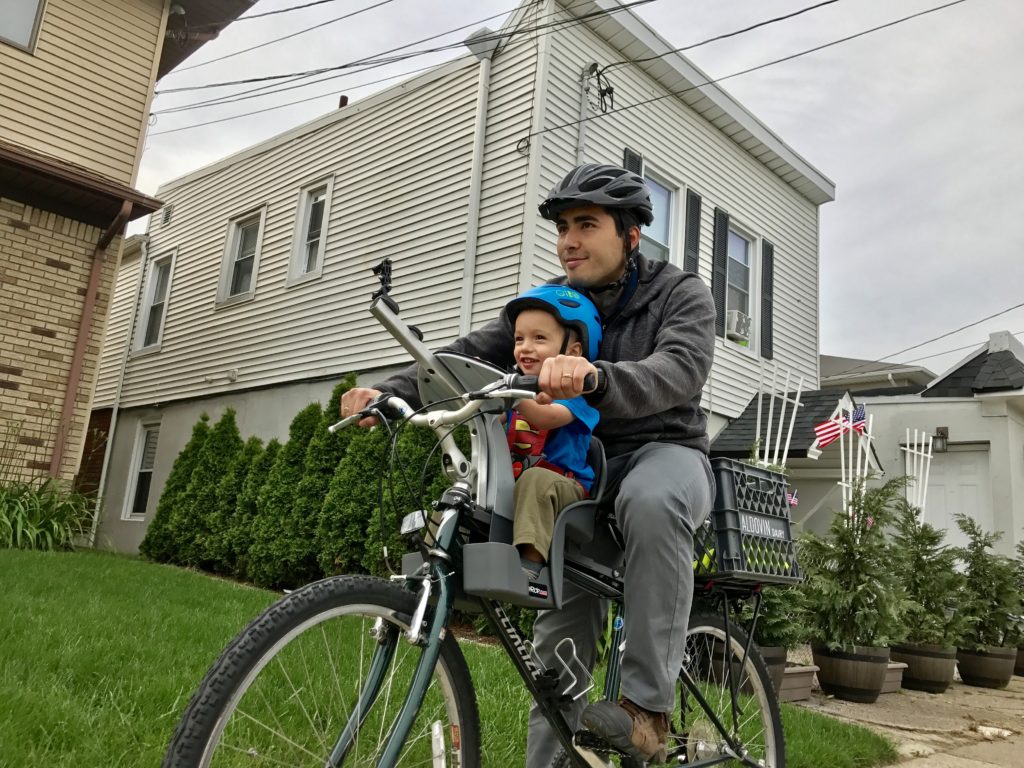
8. Create a Blackout:
Aspects: ƒ
The Challenge: Go to your electrical panel and shut-off your electricity for 4 hours. (Weekly)
Although blackouts are inconvenient, I always remember the magical sense of excitement that would come over me whenever one would happen during my childhood. You’d fish for flashlights and candles. You’d break out the board games or eat all the ice cream. It was a perfect opportunity to do things you wouldn’t normally do.
Why not make it a weekly tradition?
9. Run Barefoot
Aspects: ♥
The Challenge: Run a quarter mile completely barefoot. (Lifetime)
I started running barefoot over 5 years ago and it completely changed not only the way I run, but also my whole outlook on life.
I undertook the voluntary hardship to ditch the nice cushy protective shoes after reading Born to Run. Why? How?
When you wear mittens, you lose finger dexterity and sensitivity.
Shoes do the same thing. Once I started barefoot running, my body showed me how nature intended us to run. Front strike first, and rocking to the heel with bent knees.
My foot started developing muscles, and instead of just being trapped in a cast, it was allowed to work as the complex system it is. My feet actually shrunk a whole shoe size after barefoot running for a period of time.
Cushioned shoes mask pain and give allowance for bad form, which can cause serious long-term injury.
I don’t always run barefoot, but I always run with minimalist footwear. I encourage all runners to run a quarter mile barefoot so that nature can teach you how you should be running.
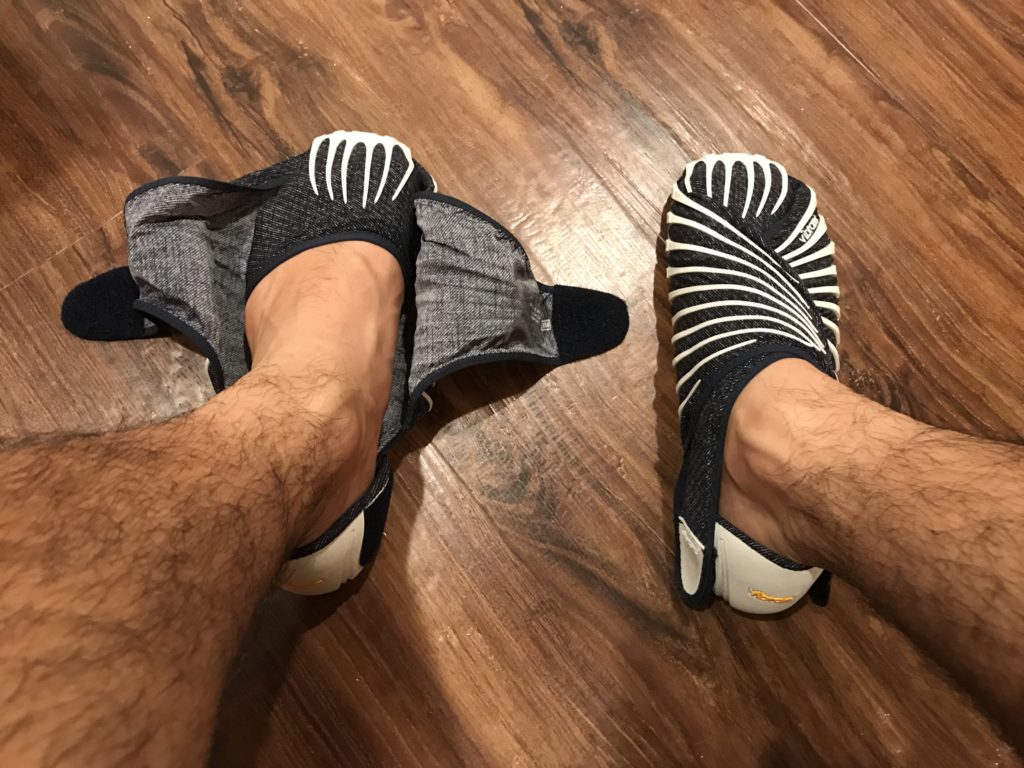
10. Maintain Eye Contact
Aspects: †
This one I picked up from Tim Ferriss in the 4-hour workweek. Essentially, the challenge is to not break eye contact when passing others in the hall or anywhere.
11. Drink Only Water
Aspects:♥, $
Challenge: Drink only water, at least a gallon a day. (Daily)
Some people buy coffee every day. At $3/day, that’s more than $1,000/year! This doesn’t even consider all the drinks people buy at convenience stores and restaurants.
I only drink water, I always carry around a 1-liter Nalgene bottle with me, and I average consuming more than 2 gallons each day.
12. Park Far Away, Take the Stairs
Aspects:♥, †
By parking far away from your destination, you don’t have to wait for spots. You will also be less stressed when others take your precious spot, and you will be happy to go for a nice walk. The best part is you will be saving it for someone who might really need it.
13. Sit on an Exercise Ball / Get a Stand-up Desk
Aspects:♥, †
Since January (10 months ago), I’ve been sitting on an exercise ball at work. It promotes good posture, burns extra calories, relieves back pain, provides more opportunities to stretch, and tones core muscles.
If your work doesn’t allow sitting on a ball, then I suggest scooting up in your chair, so that you do not use the chair’s backrest.
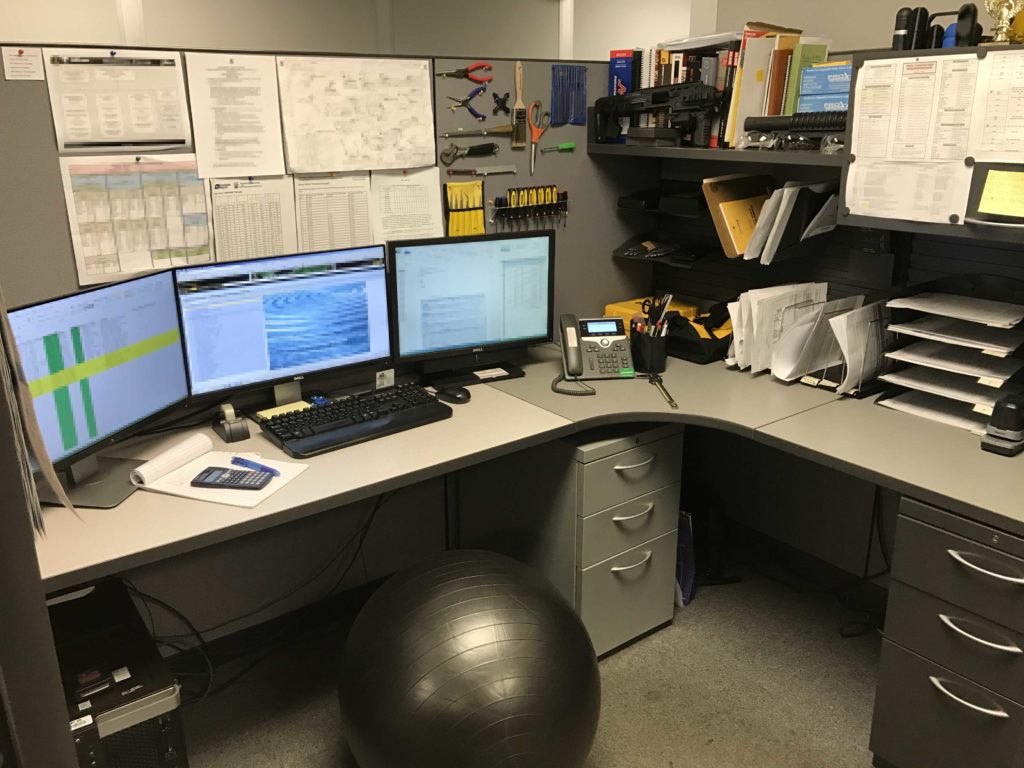
14. Blindfold Yourself
Aspects: †
The Challenge: For 3 hours, wear a blindfold. (Annually)
I am very excited to do this challenge. My excuse for not doing it yet is that I typically do not like to do challenges that will inconvenience my family. But I think this one will be an “eye-opener” to many things that we take for granted.
15. Sleep on the Floor
Aspects: ♥, †, $
The Challenge: Get rid of the bed and sleep on the floor with just a rug or mat between you and the floor. (Daily)
Since I have a Japanese mom, I grew up often sleeping with a simple mat between me and the floor. So I have no qualms about sleeping in other’s living rooms, etc. I am a very low-maintenance guest. Give me a sleeping bag and I am more than happy. Sleeping on the floor is supposed to promote good posture and sleep.

16. Contact Someone Everyday
Aspects: ƒ, †, ⍟, ©
The Challenge: Call or message someone you’d like to get to know better or have lost touch with. (Daily)
I am confident that if I took on this challenge, it could significantly change my world. By calling someone new or someone you’ve lost touch with, you could better maintain a relationship or give guidance. If you’re not into calling someone, writing letters is just as powerful.
17. Volunteer (Live for the Sake of Others)
Aspects:♥, ©, ƒ, †,⍟,$
The Challenge: Volunteer for the worst chores or tasks.
To me, a hero is someone who lives for the sake of others. You don’t need superpowers, you just need to do things that everyone has the ability to do, but not the selflessness to do.
18. Don’t use Heat or Air Conditioning
Aspects:♥, †, $
The Challenge: For one week try going without heat or a/c in your car.
Growing up, my father was frugal and he would rarely put the thermostat above 65 degrees. I feel that this grew my literal comfort zone, and I am more resilient because of it.
19. Try Public Speaking
Aspects: ©, †,⍟
The Challenge: Seek out public speaking roles, and whenever asked, just say yes! Join a local Toastmaster Chapter.
Did you know that public speaking is the most common fear?
In my eighth grade yearbook, I was awarded the title of shyest kid.
I dreaded public speaking, especially because my hands and feet would literally shake and my voice would quiver. Recently though, I’ve challenged myself to accept every public speaking role requested of me, including attending a Toastmaster session and participating in podcasts, some with over 100,000 listeners per episode.
20. Join Big Brother, Big Sister
Aspects: ⍟, ƒ, †
The Challenge: Volunteer to be a role-model/mentor to a youth.
This one is huge: I was impressed when I found out my brother had enrolled in the Big Brother, Big Sister program. The program matches a child with a caring adult role model. My brother would meet with his “little brother” and take him out to the park, help him with homework, things like that. If you really want some positive change and growth in your life, mentoring someone else and making an impact on their lives will achieve this.
21. Survive on a Minimal Budget
Aspects: ♥, †, $
The Challenge: Set a monthly out-of-pocket budget, take that amount out in cash, and only spend that amount for the month.
This is the basics of creating wealth: living below your means. It’s a difficult choice, but it will definitely lead to a peaceful life. To find out what that amount should be and still be able to save toward achieving your goals, I would use this spreadsheet.

Update: Added a few more voluntary hardship suggestions, courtesy of Taka Sugawara
- Stand while commuting on public transportation
- Make your bed immediately after you get out of it
- Dress a little less warm than what’s comfortable
- Hand-wash lighter laundry loads
- Leave public lavatories better than you found them
- Do not leave the house without an empty sink
- Replace body wash/shampoo with just a bar of soap
- Drive in silence
- Be the last to voice an opinion
- Forego all condiments
- Arrive 5 minutes early to everything
Another Update:
I’ve been pondering about geographic areas that have four seasons and their correlation with increased productivity, industrialism, and advancement. They are in direct contrast with areas having tropical climates, where there is virtual no change in living condition. These “comfortable” societies tend to be far less advanced as a rule than those that were forced to persevere through hard winters.
Ultimately I think change is good and far too many of us fear it. I think when we can come to terms with who we are, and what we are truly capable of, we can fear less, embrace change, and live our true lives.
Concluding with the Amish
Last month, we took a family trip to Lancaster, Pennsylvania, known by many as “Amish Country.” For those who are not familiar with the Amish, they are a community who have voluntarily decided to do without a lot of the conveniences of modern living.
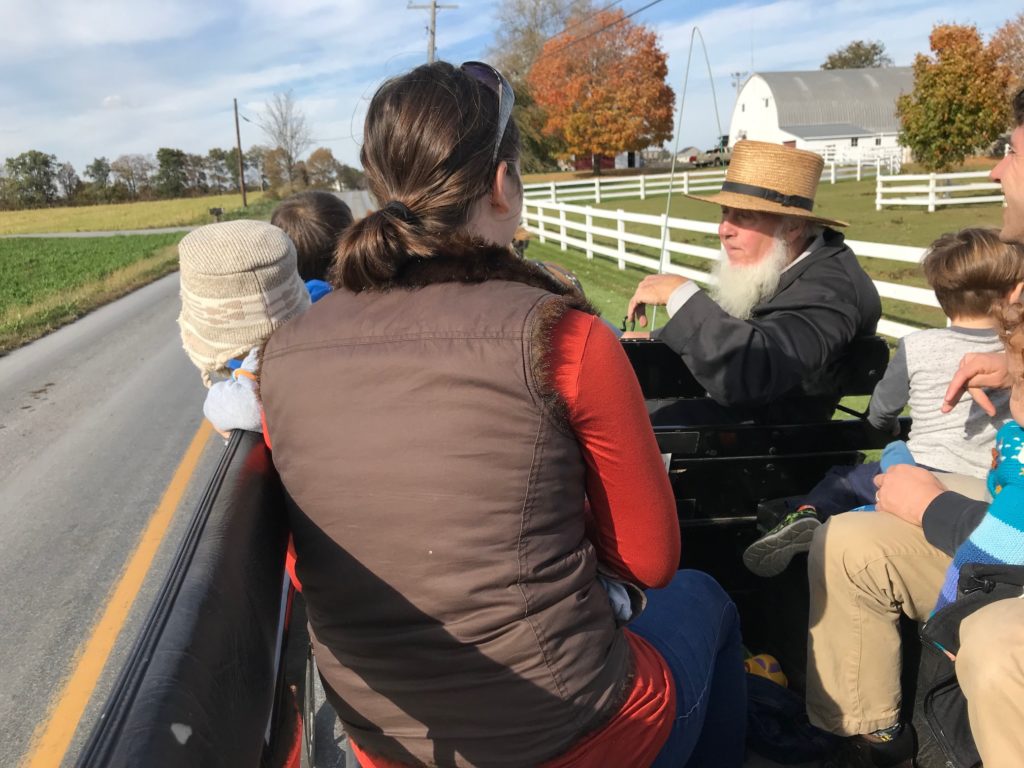
The Amish follow the Ordnung, which is a set of behavioral rules including the following:
- No motorized vehicles are to be owned or driven. Taxis may be hired.
- No travel by airplane.
- Full-length mirrors are forbidden.
- Jewelry is not to be worn.
- Electricity is not allowed in the home.
- Telephones are forbidden.
- Belts are not allowed, only suspenders.
- Unmarried men must be shaven.
- Females must keep their head covered, usually with a bonnet.
- Schooling ends by the 8th grade.
Although this is not a life many of us would choose to live, it fascinates me that the Amish – in this modern day – decided as a community to live a simple life of hard work, modesty, and voluntary hardship.
Some interesting statistics came from an 8-year study relating to cancer in the Amish community. A researcher found that the Amish in Ohio had a 40% lower cancer rate than the surrounding population. In another study, the Amish were 6 times less likely to have allergies than the standard population. It is widely known that farm living reduces the risk of allergies and asthma. The Amish also have close to a 50% lower suicide rate than their non-Amish neighbors.
What’s also interesting is that even in the modern era, with all its conveniences, when adolescent Amish are of age and given the choice (Rumspringa) of whether or not to embrace the Amish lifestyle, 90% of the time they say yes and lead a life of voluntary hardship.
It’s not just the Amish – Catholics have Lent (40 days to give up something), observant Jews have the Sabbath (no work, telephones, cars, or fires on Saturday) and Muslims fast (30 days where no food or liquid is consumed from dawn to dusk) during Ramadan. Then there’s vegetarians, vegans, and pescatarians as well.
I am not exemplifying the Amish as the ideal. However, there are advantages to placing restrictions on oneself. Shortcuts and conveniences don’t necessarily make you a happier human being.
Everyone dislikes hardship, but what many fail to understand is that there are two types of hardship: the hardship of self-discipline, and the hardship of regret. We tend to try and avoid self-discipline but this often leads to the most profound disappointment – regret.
Successful people challenge themselves to conquer their fears. They know that comfort does not equal happiness and they fortify themselves by voluntarily delaying gratification. They realize that the pain of self-discipline is trivial when compared with the limitless potential for growth.
I hope that every reader takes on at least one of these challenges. I would love to hear how the experience changes you, so please comment below. If you have your own challenges to share, let me know – I am always looking to grow. Thanks for reading. Good luck, and Godspeed!

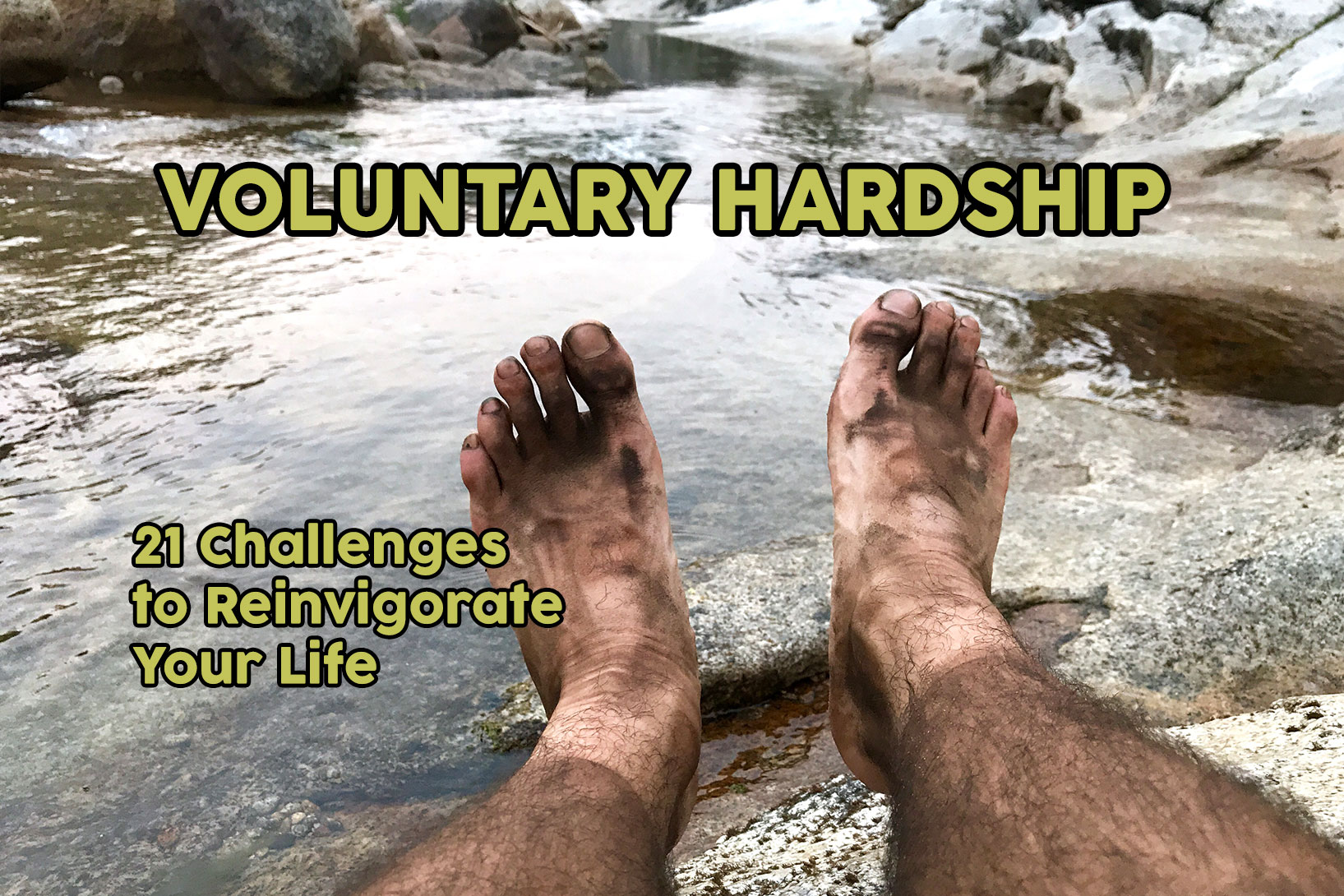
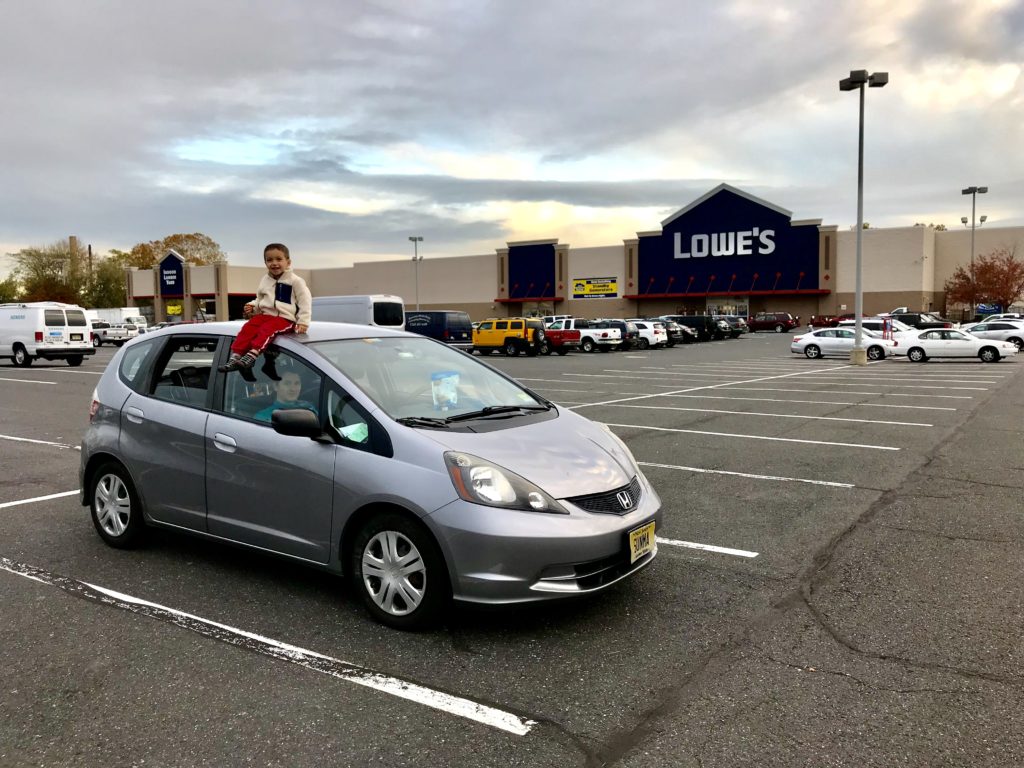

6 thoughts on “Voluntary Hardship: 21 Challenges to Reinvigorate Your Life”
I liked the challenges. I don’t know if the muscle memory in my legs remembers how to run anymore. I’d like to try that running
I’m going to try the phone grayscale tip! THanks!
Fantastic article! I already do a few of those, will try do some others. There are a couple that really scare me (or don’t appeal to me), like maintaining eye contact and creating a blackout. But I guess there is added value in pursuing those challenges that you don’t really feel like doing?
I always think there is value in challenging yourself and building resilience.
Cycling to work has been a real joy. Rain is troublesome, but cold is practically nothing once you get started. It also means that I don’t have to worry about getting to the gym, I have already gone.
Sign me up for the hardship of self-discipline. Very well written article. Also the fact that 90% of the young Amish choose voluntary hardship is pretty neat. Thanks for the great read!